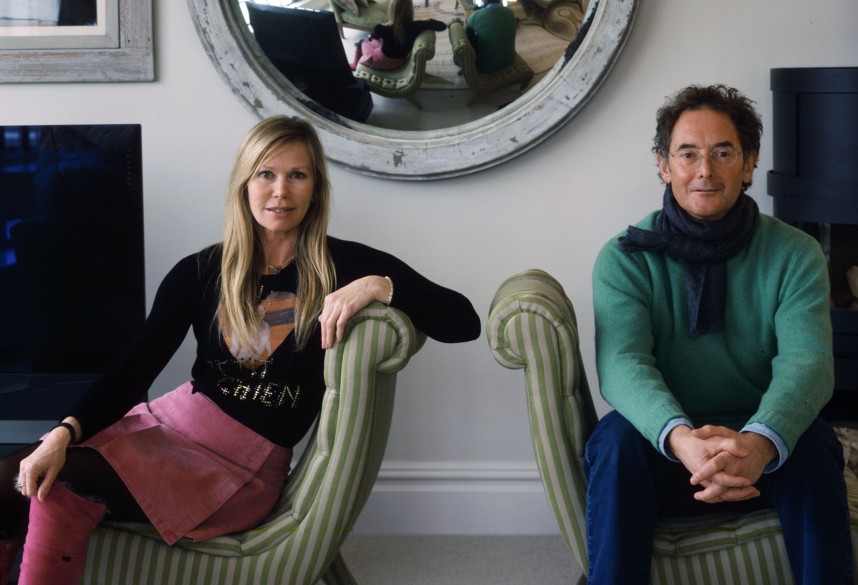Tim and Kit Kemp: Designers, Developers, Publishing Power Couple
By Something Curated
It’s safe to say that Tim and Kit Kemp are names to know in interior design. They were pioneers in developing and executing the boutique hotel in London and recreated period spaces with elaborate and quirky design.
The pair own The Soho Hotel, Charlotte Street Hotel, Covent Garden Hotel and Haymarket Hotel, the Knightsbridge Hotel, The Dorset Square Hotel, Number Sixteen, and more recently, Ham Yard Hotel in 2013—a site that’s seen considerable attention from the estate and design sector for having not only a restaurant and bar but also a cinema and bowling alley—adventurous features that not many hotels have added to new developments in recent times. The Firmdale Hotel group also includes the Crosby Street hotel in New York.
After meeting at an architecture firm in the 80s, they founded Firmdale Hotels in 1985. High standards and a unique perspective have turned Firmdale hotels into more than just overnight stay locations. The townhouse decoration style—fresh, modern yet quintessentially English—has made for textbook technique and coveted narrative in interior design.
As chairman, Tim’s role is that of property developer and accountant, while Kit is the group’s design director. Individually, they have both been recognized for their work, with Kit’s creativity and prowess in the interior design world winning her the Andrew Martin International Interior Designer of the Year award and the House & Garden Pineapple Award for Hotel Designer of the Year, both in 2008, plus collaborations such as the Folkthread collection with boho-cult Anthropologie in 2015. Their joint achievements have principally been in boutique hospitality. Design, therefore, has become a by-product part of the experience (or USP) and their chief marketing tool. Kit was named the Andrew Martin International Interior Designer of the Year in 2008 and is the author of several books including 2012 release A Living Space and 2015 book, Every Room Tells A Story. Tim and Kit received the Queen’s Award for Enterprise in 2000, 2006 and 2009, a recognition of its outstanding achievement to international trade.
On Hotel Design:
“Hotels should be living things, not stuffy institutions.”
“Very often in New York you have these huge buildings and there is no real daylight in the center. [Crosby Soho] is a small hotel so it can feel very personal. When you get out of the lift on every floor it is different—a different color with sort of odd wallpaper on each floor. As a guest, you should want to open every door and to find something original in every room, whether it is painting or chair.”
“I don’t like places that are overdesigned because that means they are going to date. They look like they have been designed by a massive team. Very often, if they are in New York, or in Thailand, the design looks the same. I hate that. You should feel a sense of arrival and know where you are. Or there should be something that resonates with a particular area. At the Crosby in Soho, I loved the idea of an art salon, where people could meet. I thought Soho was an artistic community and wanted it to be part of that [and] not to stand out. I like it when a guest asks, “Where did that come from?” Or, “What’s this—it’s strange!”
We thought Soho London and Soho New York echoed one another. That made it very easy for us to think about a village feel. Soho London doesn’t have chickens on the roof, nor a helipad. The wonderful thing about London Soho is you look across and see people hanging their washing and storing bicycles, going on about their lives. You get the feeling of people actually living there. We like villages.”
On Staying Creative When Working On A Project:
“Design is a private, intimate process and you have to embrace the many twists and turns it takes to create exciting, inspiring but ultimately liveable space.”
On Restaurants and Lighting:
“It’s crucial. I don’t like lighting that goes on men’s bald spots. I don’t like those restaurants where you feel you can’t speak. I hate tasting menus. I’d rather have three or four good courses, not 14. I don’t need snails on porridge.”